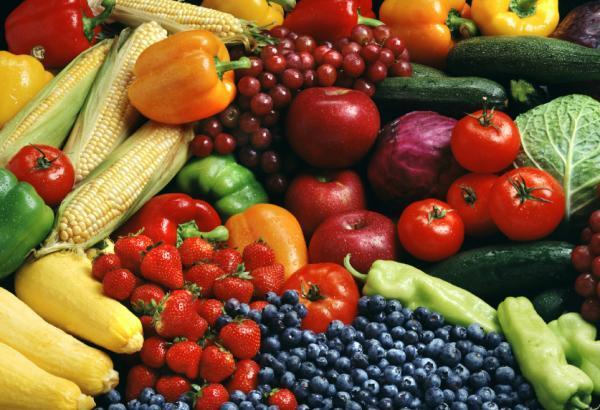Want an entertaining afternoon full of home health remedies and snarky comments? Go to Reddit. Want advice on how you should be eating, and the relationship between food, health and the environment, go to a doctor! “Choosing a better, more sustainable diet is one of the main ways people can improve their health and help protect the environment,” says University of Oxford researcher Michael Clark, PhD, author of an article published in November 2019 in Proceedings of the National Academy of Sciences (PNAS).
What is sustainable food?

Sustainable food is food that has a minimal effect on the environment, with special consideration given to biodiversity, ecosystems and natural resources. In addition, a sustainable diet should be safe, diverse, healthy, and should also be affordable! Overpriced “healthy” food is often great, but not a sustainable choice for those without an unlimited budget.
What Sustainable Eating Looks Like
Sustainable eating looks and tastes great! The first good look you develop with a sustainable diet is a look at where your food came from. Eating sustainably means being aware of what you are eating, where it came from, and how it was grown, and supporting companies who hold to your personal values. Let’s explore a few proven tips to help make your sustainable eating habits happen quickly and painlessly.
Tips to Make it Happen:
-
Eat a variety of foods
When developing a more sustainable lifestyle and eating habits, it’s important to eat a variety of colourful foods daily. Many people get into a nutritional-rut, eating things that are cheap and easy to heat up. Branch out and buy new, healthy, and locally-sourced food this week. Watch out for candida die off symptoms when your diet changes, usually consisting of a few days of malaise or flu-like symptoms. This is just the toxins in your body dying off – leaving room for new and healthy materials!
-
Focus on vegetables, beans, and nuts
Vegetables, beans and nuts are great, sustainable foods to incorporate into your diet. Not only are they healthy, they don’t have a massive impact on the land where they are grown. Focusing on eating more of these foods doesn’t mean you will go without protein. Proteins are found in many plant sources!
-
Grow your own
Anyone can grow simple vegetables like tomatoes, and herbs like basil, even in small outdoor spaces like a patio. Investing the time into growing your own food will give you a better understanding of what it takes to make fresh food, and therefore what you are wasting when you throw things away.
-
Reduce consumption of processed foods

Processed foods like lunch meats, hot dogs and white bread products are easy and fast, but not great for your sustainable eating habits. Foods like this are not just bad for you, they also use plastic packaging and refrigerated trucks on their journey to the local grocery store, making them detrimental to the environment and to your health.
-
Moderate your meat
In 2018 the world was consuming 346.14 million tons of meat per year, consisting mostly of pork, poultry or beef. By simply moderating the amount of meat you eat, and avoiding red meats as much as possible, you will have a massive impact on your wallet, health and the earth.
-
Buy locally first
What makes buying locally so important to a sustainable diet, is how easy it is to incorporate this element into your daily life. Local produce doesn’t need to travel a supply chain, doesn’t need refrigerated trucks or planes, and is often grown using more natural fertilization products. Buy locally and have a very real effect on both the environment, and your body.
-
Compost
Composting can reduce the amount of trash sent to landfills by around 30%, with places like San Francisco reducing their landfill trash by 80%. It’s easy to see why composting is important to a sustainable lifestyle, but you can also use compost to fertilize your lawn, or add it to your personal garden, and watch the plants shoot up!
-
Preserve the harvest
Eating sustainably means shopping for less, and preserving foods for later. Learn how to pickle, jar or can your home-grown or locally sourced vegetables for future use. If you learn how to preserve your harvest now, you can enjoy locally grown and seasonal foods all year long, while maintaining your sustainable lifestyle.
There is simply no downside to a sustainable diet. We all want, and need, to have less impact on the earth and more healthy lifestyle choices. Follow these tips carefully, and branch out and explore other healthy and sustainable eating habits of your own, to build a long-term and more sustainable healthy lifestyle.


